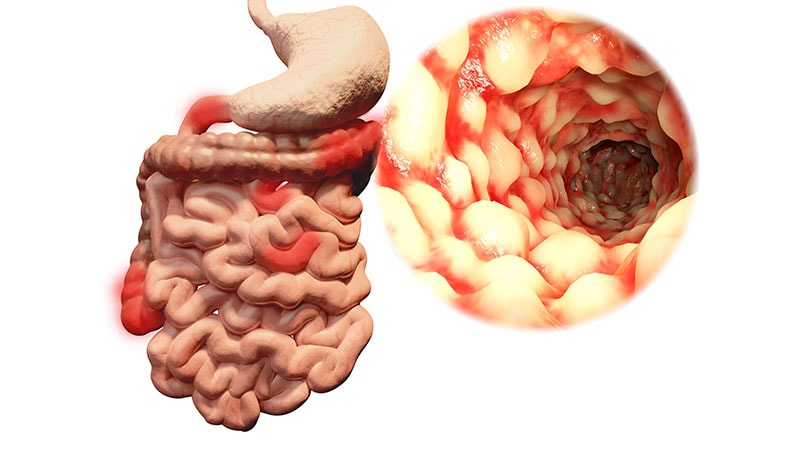[ad_1]
TOPLINE:
Signs of inflammatory bowel disease (IBD) activity, shorter duration of IBD, and previous corticosteroid use and hospitalisation were associated with Clostridioides difficile infection in patients with IBD.
METHODOLOGY:
- Researchers conducted a retrospective cohort study in Finland to identify the risk factors for C difficile infection in patients with IBD.
- For the case-control analysis, data of 279 patients with IBD diagnosed with C difficile infection (IBD-infection group; median age, 37 years; 57% men) from 2008 to 2021 and 277 age- and sex-matched patients with IBD without a history of C difficile infection (control group) were collected from electronic patient charts.
- C difficile infection episodes were diagnosed and confirmed, and recurrent infections were defined as symptomatic episodes with a positive stool test following eradication treatment, occurring at least 14 days after a previous positive test.
- The study assessed various clinical parameters, including medication use, hospitalisation, and disease activity, 3 months before and up to 6 months after infection. Data for the control group were collected on the basis of a matched timepoint related to the infection episode timepoint.
- IBD activity was assessed using symptoms such as abdominal pain, fever, diarrhoea, and bloody stools, along with faecal calprotectin levels as a marker of inflammation.
TAKEAWAY:
- Corticosteroid use 3 months before C difficile infection was more common in the IBD-infection group than in the control group (64% vs 21%; P C difficile infection occurred in 30% of the IBD-infection group vs 5% of the control group (P
- A disease duration of P
- IBD symptoms were noted in a higher proportion of patients in the IBD-infection group than in the control group both 3 months prior to infection (50% vs 36%; P P
- Recurrent C difficile infection occurred in 30% of patients with IBD and was more common in patients with ulcerative colitis than in those with Crohn’s disease (P = .023).
IN PRACTICE:
“Patients with signs of active IBD and a short duration of the disease may benefit from proactive treatment of IBD and more frequent monitoring in the early stages, as these patients appear to be at higher risk of developing CDI [Clostridioides difficile infection],” the authors wrote.
SOURCE:
The study was led by Krista Vitikainen, HUS Helsinki University Hospital, Helsinki, Finland. It was published online on February 17, 2025, in Therapeutic Advances in Gastroenterology.
LIMITATIONS:
The study’s limitations included its retrospective design, the absence of endoscopically confirmed disease activity, and the lack of matched medications and IBD subtypes between the IBD-infection and control groups. Data on faecal calprotectin levels were not available for half of the patients. Additionally, the long data collection period involved changes in treatment models for IBD and C difficile infection, which may have influenced the results.
DISCLOSURES:
No financial support was reported for this study. Some authors reported receiving speaker or consultancy fees from several pharmaceutical companies outside the submitted work.
This article was created using several editorial tools, including AI, as part of the process. Human editors reviewed this content before publication.
[ad_2]
Source link : https://www.medscape.com/viewarticle/disease-activity-ibd-risk-c-difficileinfection-2025a100049h?src=rss
Author :
Publish date : 2025-02-21 12:00:00
Copyright for syndicated content belongs to the linked Source.
